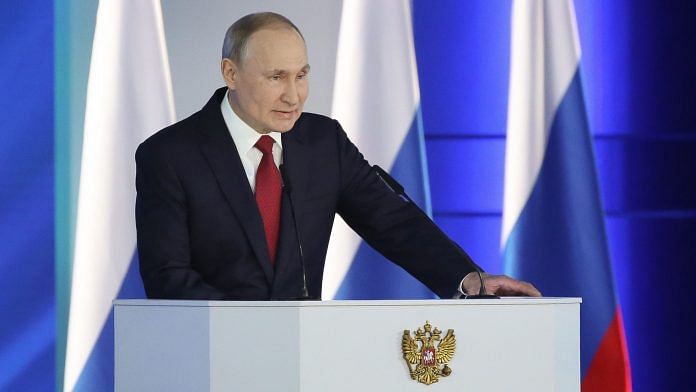By all appearances, the standoff over Ukraine remains dangerous. Although Russia continues to deny that it plans an attack, President Vladimir Putin has massed troops, hardware, weapons stockpiles and medical units on Ukraine’s borders, and continues to add to their number. The U.S. is sending 2,700 troops to bolster NATO’s eastern flank, with at least 8,500 more ready to deploy. Having previously downplayed the prospect of an imminent Russian attack, Ukraine’s president, Volodymyr Zelenskiy, has more recently warned that the crisis could lead to a full-fledged European war.
Even so, there are glimmers of a way out. Confronted with a surprisingly strong and united Western response to his moves, Putin has signaled some willingness to entertain talks on Russia’s security concerns in Europe. While not bowing to Putin’s more extreme demands, U.S. President Joe Biden and European leaders should seize the opportunity to find some common ground with him. Doing so has the potential to avert a calamitous conflict and advance the West’s security interests as well.
Proposals made by the U.S. and NATO in recent weeks offer a starting point. Among other things, they aim to improve communication between the two sides by resuming mutual briefings on military exercises and nuclear policies. NATO’s proposal would reinvigorate the NATO-Russia Council, which has met only sporadically since Russia’s annexation of Crimea in 2014, and reestablish representative offices.
The West should push for tangible agreements on key areas of dispute. These should include measures to avoid conflict between vessels in the Black Sea and greater transparency on military exercises, which Russia has skirted in the past. The U.S. can allay Russian anxieties by allowing Moscow to inspect missile-defense sites in Romania and Poland which the Kremlin claims are cover for offensive nuclear-armed missiles — so long as Putin agrees to offer access to missile bases in Russia, including those in the region of Kaliningrad, which borders Poland. Biden’s offer to discuss such an arrangement is a promising start. If talks move forward, the U.S. should ensure the Romanian and Polish governments are involved and protocols are in place to prevent Russian inspectors from obtaining classified information.
As a condition for broader dialogue, the U.S. and Europe should press Russia to abide by its obligations as a member of the Organization for Security and Cooperation in Europe and agree to update the OSCE agreement on confidence-building measures, like exchanges of military information and notifications of large-scale exercises. Both sides also have an interest in resuming dialogue on nuclear weapons, particularly on preserving the 1987 U.S.-Russian Intermediate-Range Nuclear Forces Treaty, which the U.S. withdrew from in 2019. Though the U.S. had grounds to accuse Russia of violating the treaty, abandoning the pact without a replacement has done little to enhance U.S. security and made NATO allies more vulnerable to Russian intimidation. The Biden administration should use Russia’s proposed draft treaty from late last year, which hinted at greater Russian openness to disarmament-verification measures, as a foundation for resuming talks and restoring the treaty’s ban on intermediate-range missile deployments in Europe.
There’s no guarantee Putin will respond positively to such overtures. Discussions about military transparency and arms control don’t address Putin’s greatest obsession, the eastward expansion of NATO and the future of Ukraine. Even so, the Kremlin has not been explicit on its goals, leaving room for Putin to pull back from Ukraine’s borders and claim progress on broader security issues as an acceptable outcome.
Arms-control diplomacy has worked before. It could buy the world time once again.-Bloomberg
Also read: Here’s why India-Russia rift will deepen with Ukraine crisis. It’s foolish thinking otherwise



